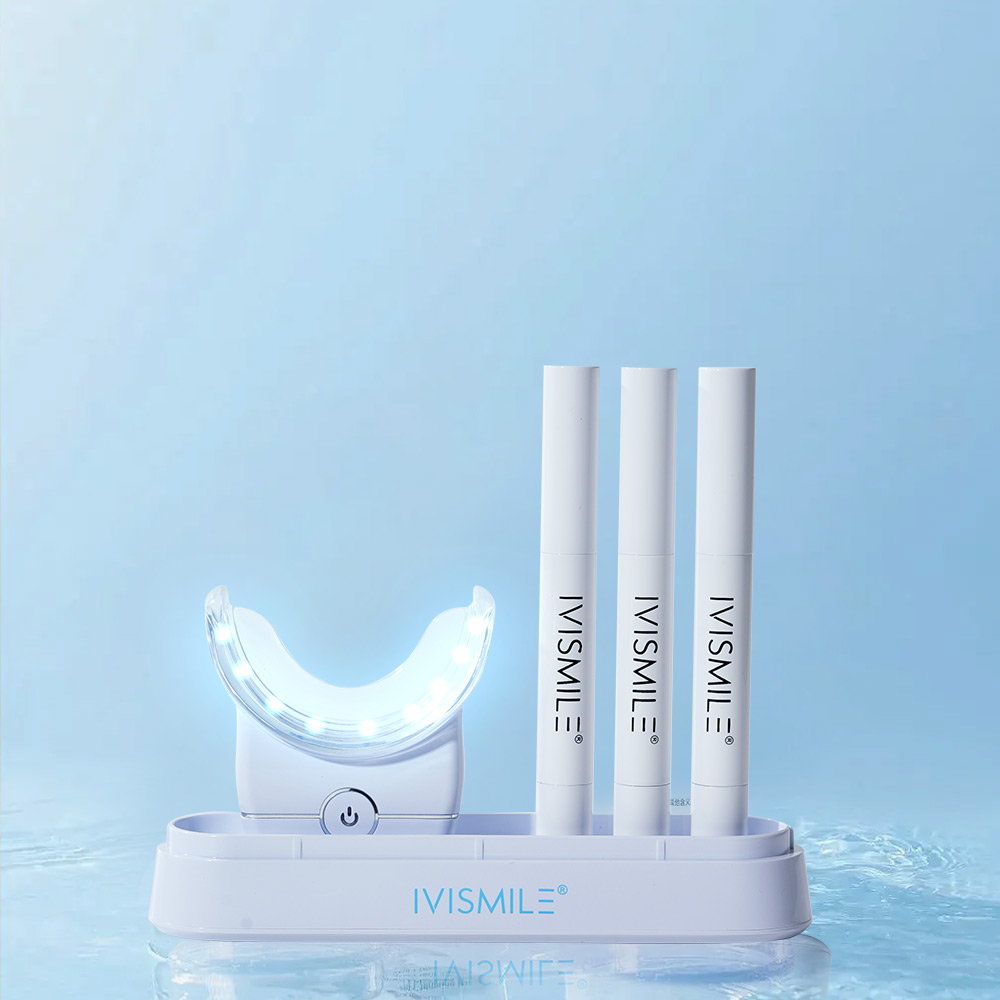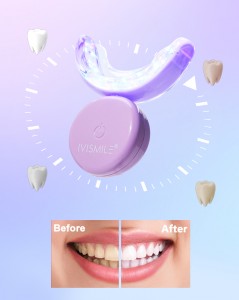A bright, white smile is often associated with confidence and good oral health. With the increasing popularity of at-home teeth whitening solutions, LED teeth whitening kits have emerged as a go-to option for those seeking professional-level results without the hefty price tag of in-office treatments. But do they actually work? In this comprehensive guide, we explore the science behind LED teeth whitening, its effectiveness, benefits, potential risks, and how to achieve the best results.
What Are LED Teeth Whitening Kits?
LED teeth whitening kits are home-use systems designed to remove stains and discoloration from teeth using a combination of a whitening gel (typically containing peroxide-based ingredients) and an LED light to enhance the whitening process. These kits aim to replicate the results of professional teeth whitening but at a fraction of the cost.
The LED (light-emitting diode) technology in these kits is used to accelerate the breakdown of the active whitening ingredients, allowing them to penetrate enamel more effectively. While LED lights do not directly whiten teeth, they speed up the chemical reaction, making the process more efficient.
How Do LED Teeth Whitening Kits Work?
1. Application of Whitening Gel
The first step in using an LED whitening kit involves applying a carbamide peroxide or hydrogen peroxide gel onto the teeth. These compounds work by breaking down into oxygen molecules that penetrate the enamel and oxidize stains.
2. Activation with LED Light
Once the gel is applied, the LED light device is placed in the mouth or directed at the teeth for a specified period. The light activates the whitening agents, enhancing their stain-removal properties.
3. Rinsing and Aftercare
After the recommended treatment time (usually between 10-30 minutes per session), users rinse their mouth and follow any aftercare instructions to maintain results.
Are LED Teeth Whitening Kits Effective?
Yes, LED teeth whitening kits are effective when used correctly and consistently. Studies and user reviews indicate that they can lighten teeth by several shades over a few weeks. However, results depend on factors such as:
-
The concentration of the whitening gel – Higher peroxide levels tend to yield faster results.
-
Duration and frequency of use – Daily use over a few weeks provides noticeable improvements.
-
Type of stains – LED whitening is most effective on surface stains caused by coffee, tea, wine, and smoking.
However, they may be less effective on deep intrinsic stains from medications or excessive fluoride exposure.
Benefits of LED Teeth Whitening Kits
1. Convenience and Cost-Effectiveness
One of the biggest advantages of LED whitening kits is that they provide professional-level results at home. Compared to in-office whitening treatments, which can cost hundreds of dollars, these kits offer a budget-friendly alternative.
2. Safe When Used Correctly
Most LED teeth whitening kits are formulated with safety in mind, offering lower peroxide concentrations compared to in-office treatments. When used according to the instructions, they pose minimal risk to enamel and gums.
3. Quick and Visible Results
Users often report a visible difference in tooth shade after just a few uses, with optimal results appearing within two to four weeks.
4. Easy to Use
These kits come with simple instructions and pre-measured ingredients, making them beginner-friendly.
Potential Risks and Side Effects
While LED teeth whitening is generally safe, some users may experience:
1. Tooth Sensitivity
Peroxide-based gels can temporarily weaken enamel, causing mild discomfort or sensitivity. Using a desensitizing toothpaste or gel can help alleviate this issue.
2. Gum Irritation
If the whitening gel comes into contact with the gums, it can cause temporary redness or irritation. Proper application and using a well-fitted tray can prevent this.
3. Uneven Whitening
If the gel is not applied evenly or if there are dental restorations (such as crowns or veneers), the results may not be uniform.
How to Get the Best Results with LED Whitening Kits
1. Choose a High-Quality Kit
Look for kits with positive reviews, proven ingredients, and a comfortable mouthpiece.
2. Follow Instructions Carefully
Avoid overuse, as excessive whitening can lead to permanent enamel damage.
3. Maintain Good Oral Hygiene
Brushing and flossing regularly help maintain whitening results and prevent new stains from forming.
4. Avoid Staining Foods and Drinks
Limit consumption of coffee, tea, red wine, and dark-colored foods to prolong whitening effects.
5. Consider Touch-Up Treatments
To keep your smile bright, use the whitening kit every few months as needed.
Frequently Asked Questions (FAQs)
1. Do LED Teeth Whitening Kits Work for Everyone?
LED whitening kits are effective for most people but may not work well for intrinsic stains (caused by genetics or medication).
2. How Long Do Results Last?
Results can last from three months to a year, depending on lifestyle and oral care habits.
3. Are LED Whitening Kits Safe for Sensitive Teeth?
Many kits offer sensitive-friendly formulas, but those with extreme sensitivity should consult a dentist before use.
4. Can I Use an LED Whitening Kit Every Day?
Most kits recommend daily use for 1-2 weeks, followed by maintenance sessions as needed.
5. Do LED Lights Damage Teeth?
No, LED lights do not cause harm to teeth. They simply accelerate the whitening process without generating heat.
Final Thoughts: Are LED Teeth Whitening Kits Worth It?
LED teeth whitening kits are a convenient, affordable, and effective way to brighten your smile from the comfort of home. While they may not provide the instant, dramatic results of in-office treatments, they offer gradual, natural-looking improvements with proper use.
For the best results, choose a trusted brand, follow the instructions, and maintain good oral hygiene. If you have severe discoloration or sensitive teeth, consult a dental professional before starting any whitening treatment.
Post time: Mar-24-2025







